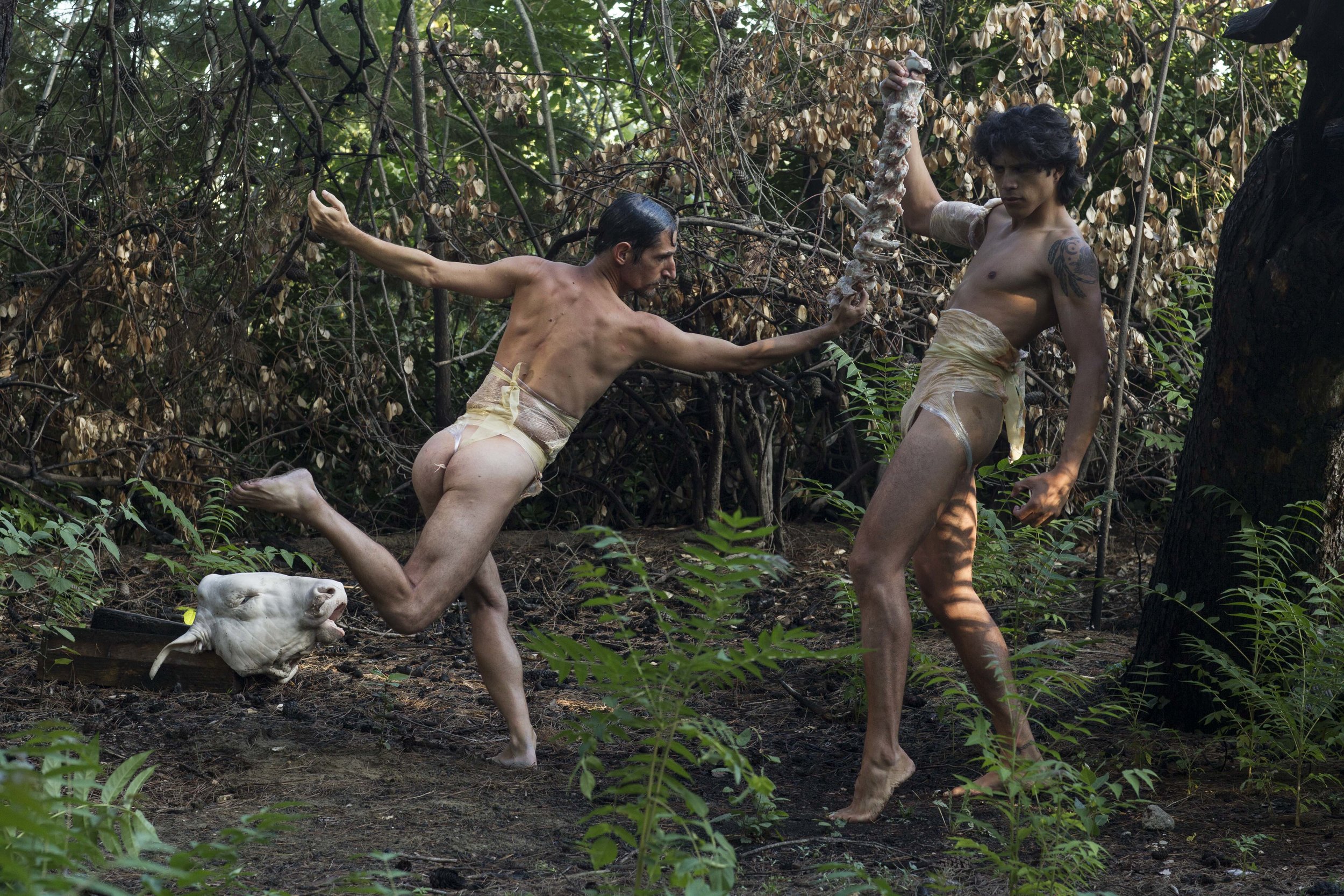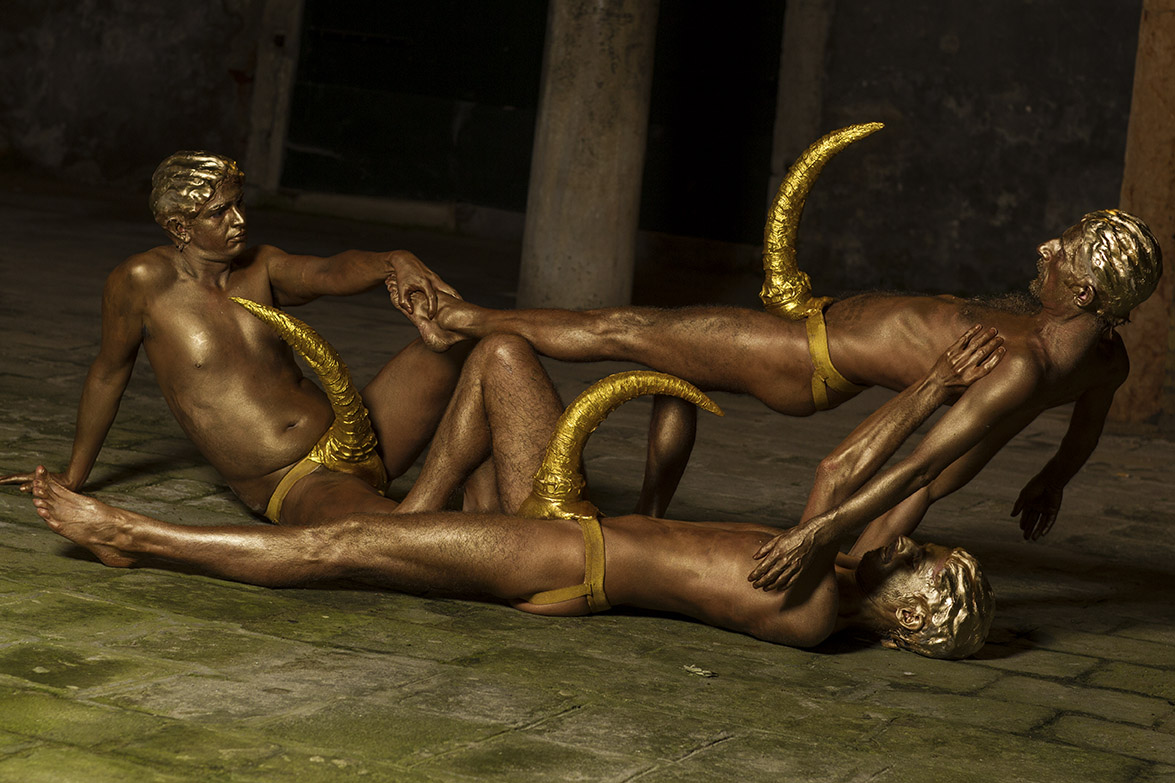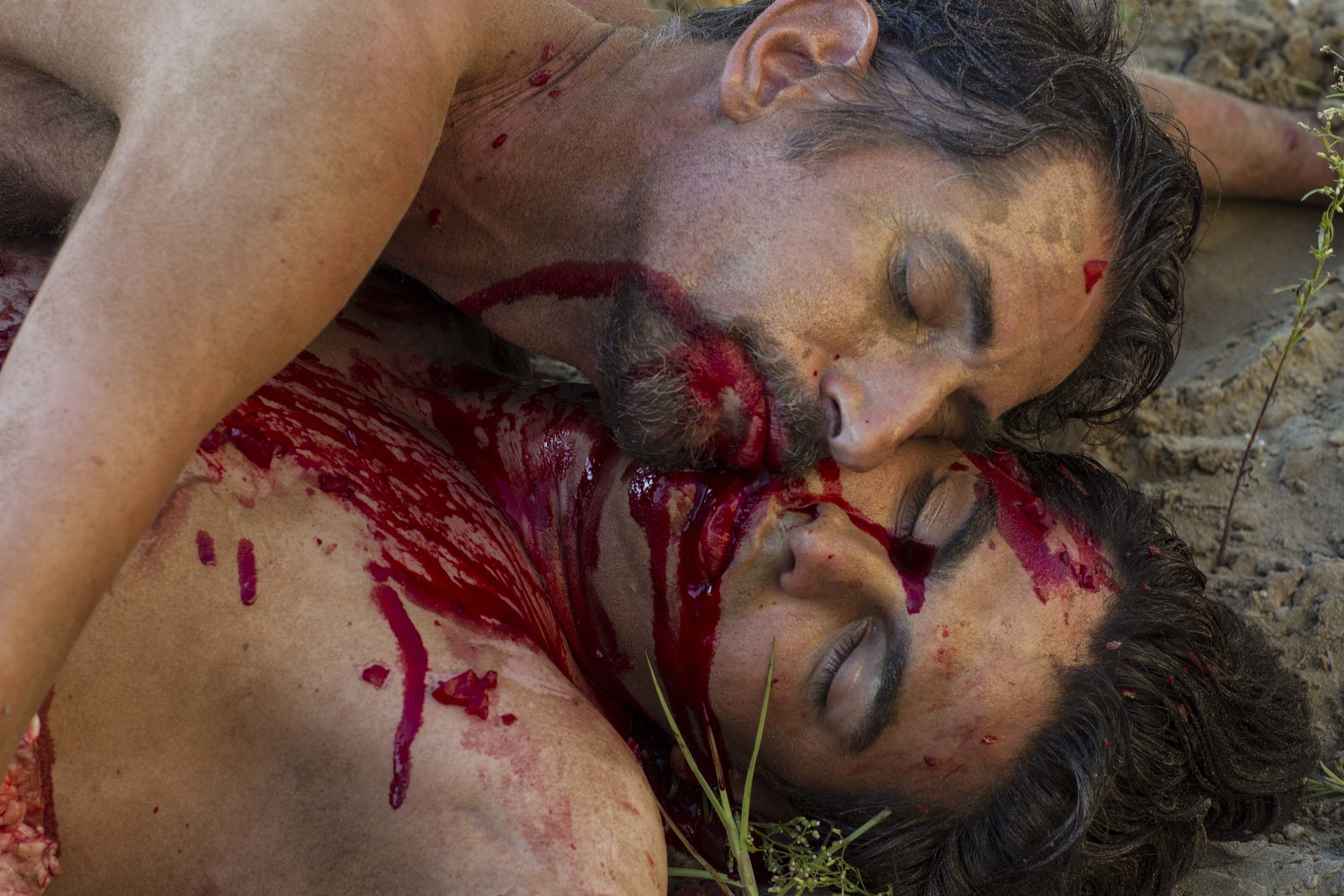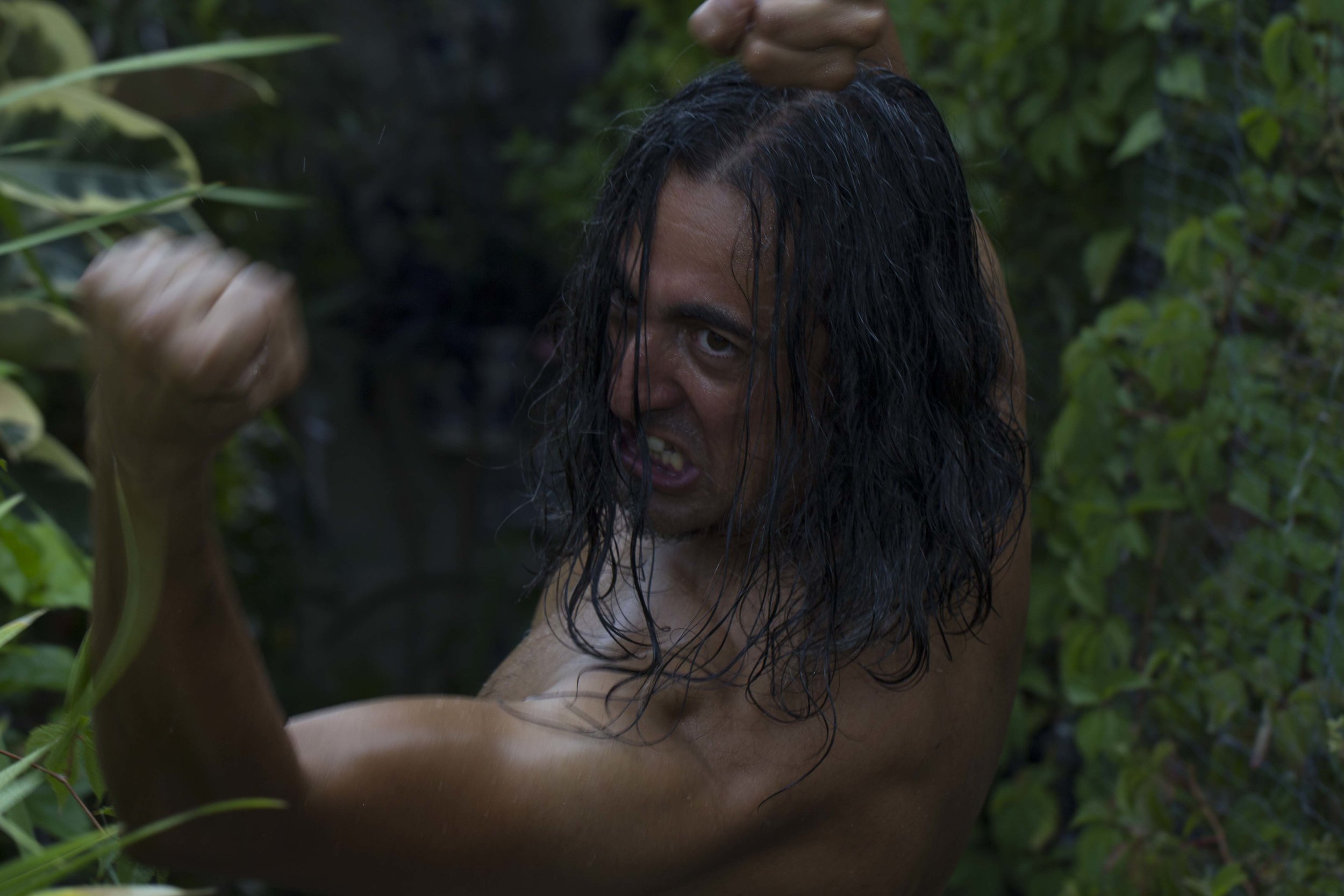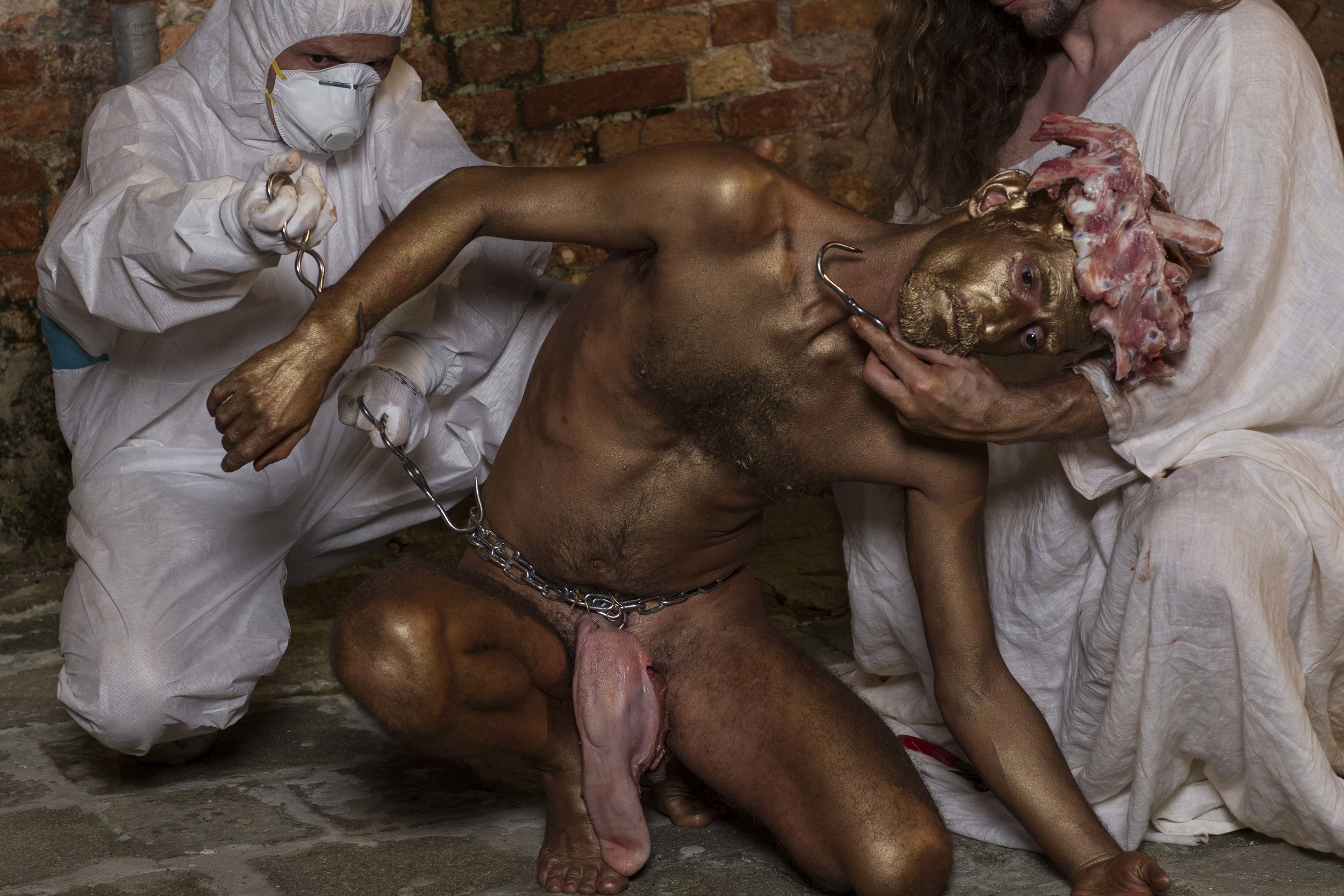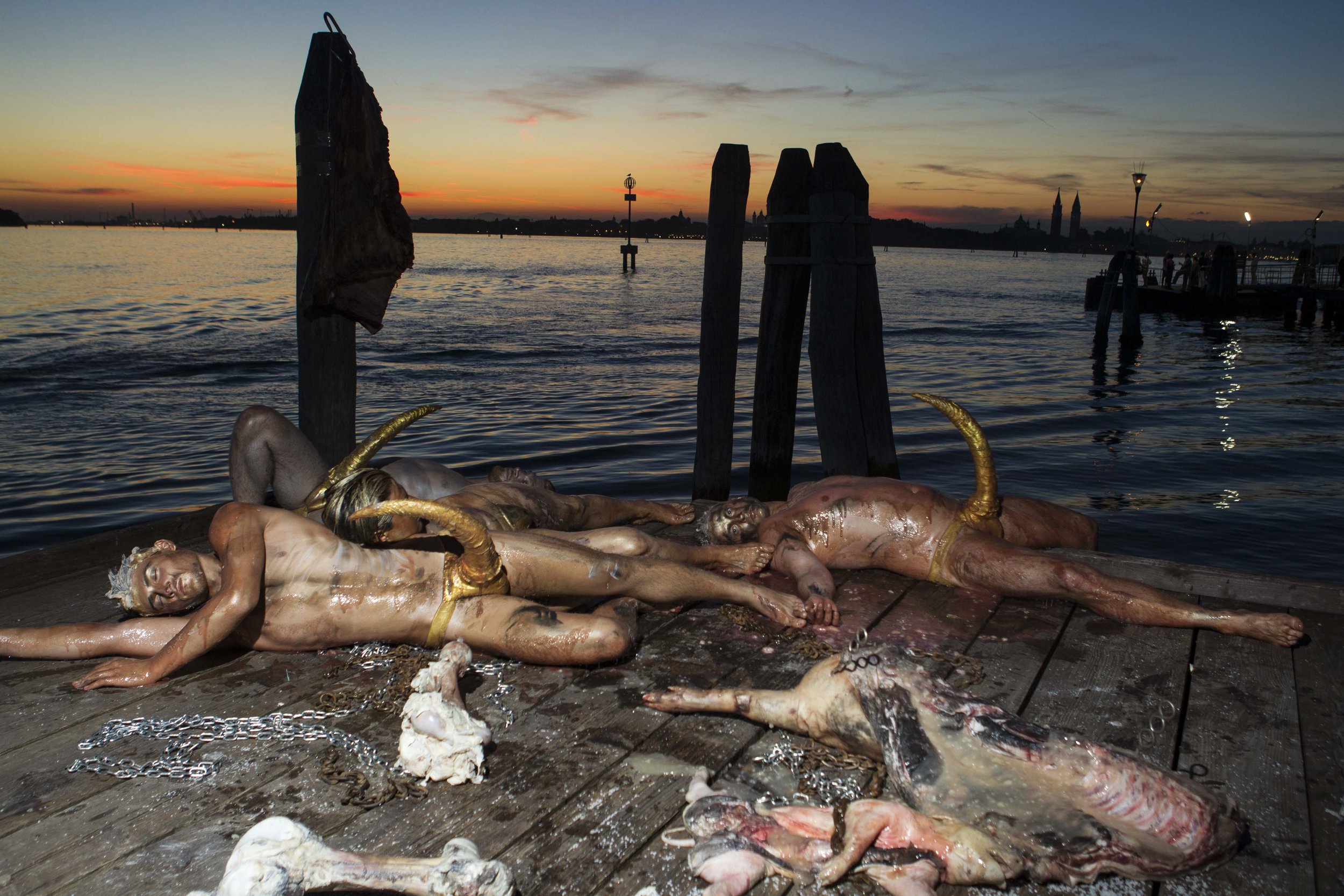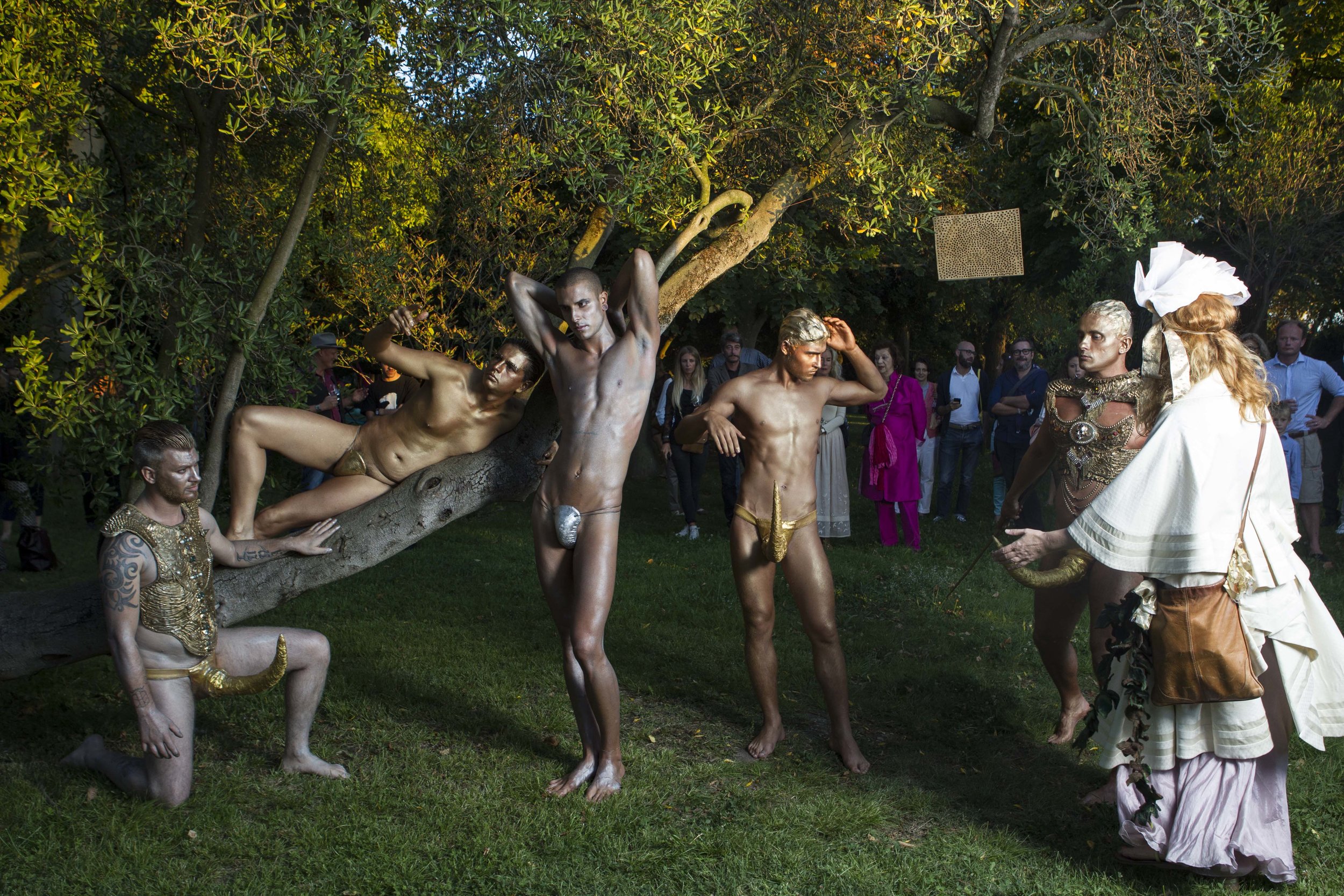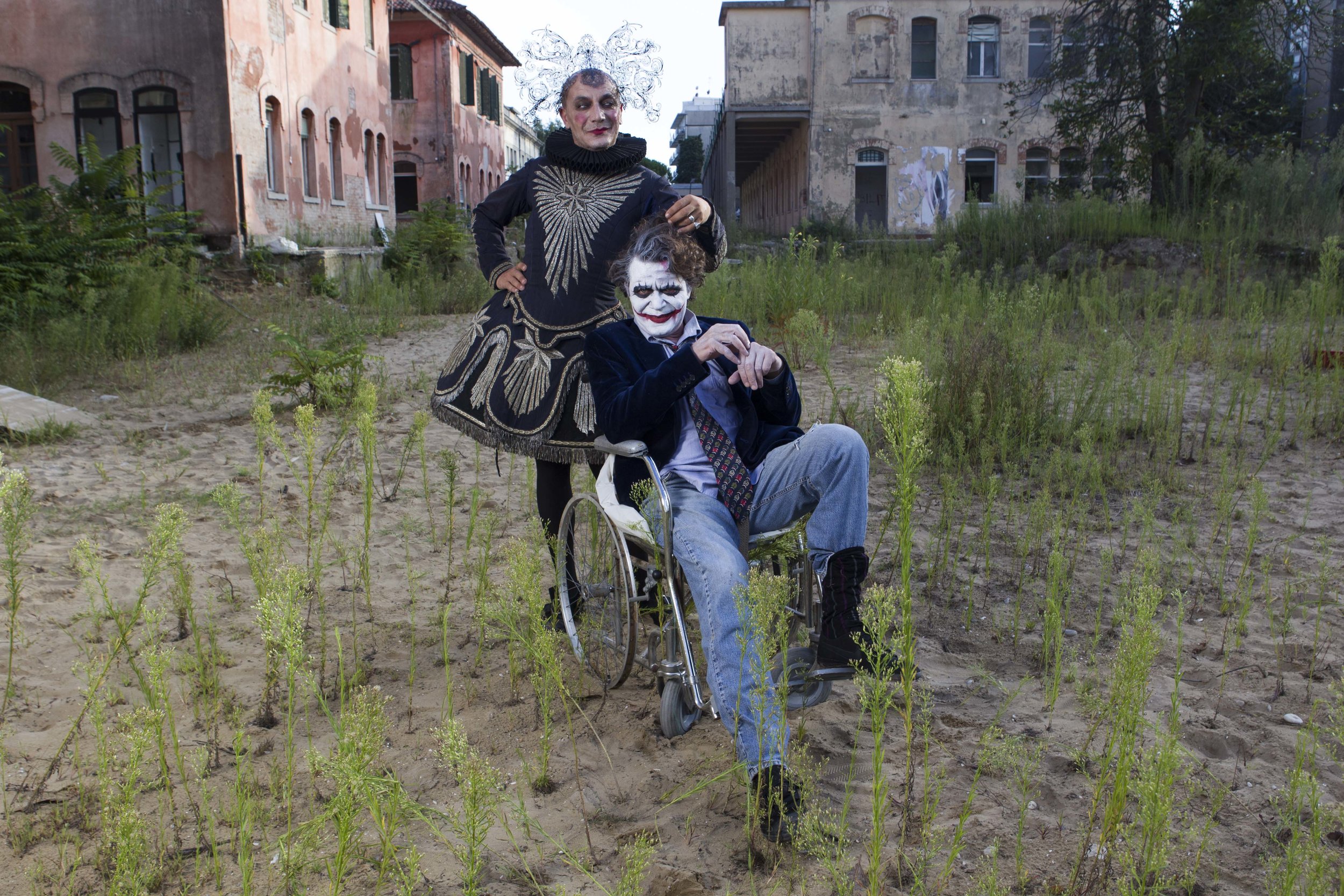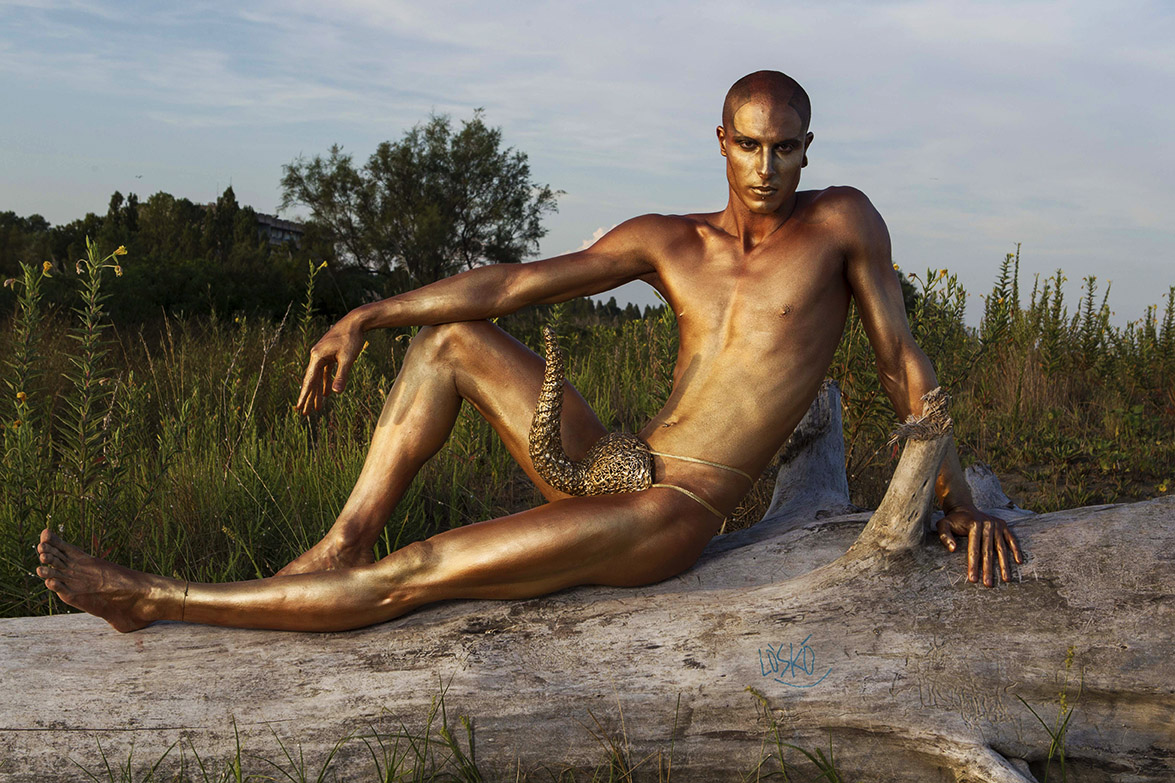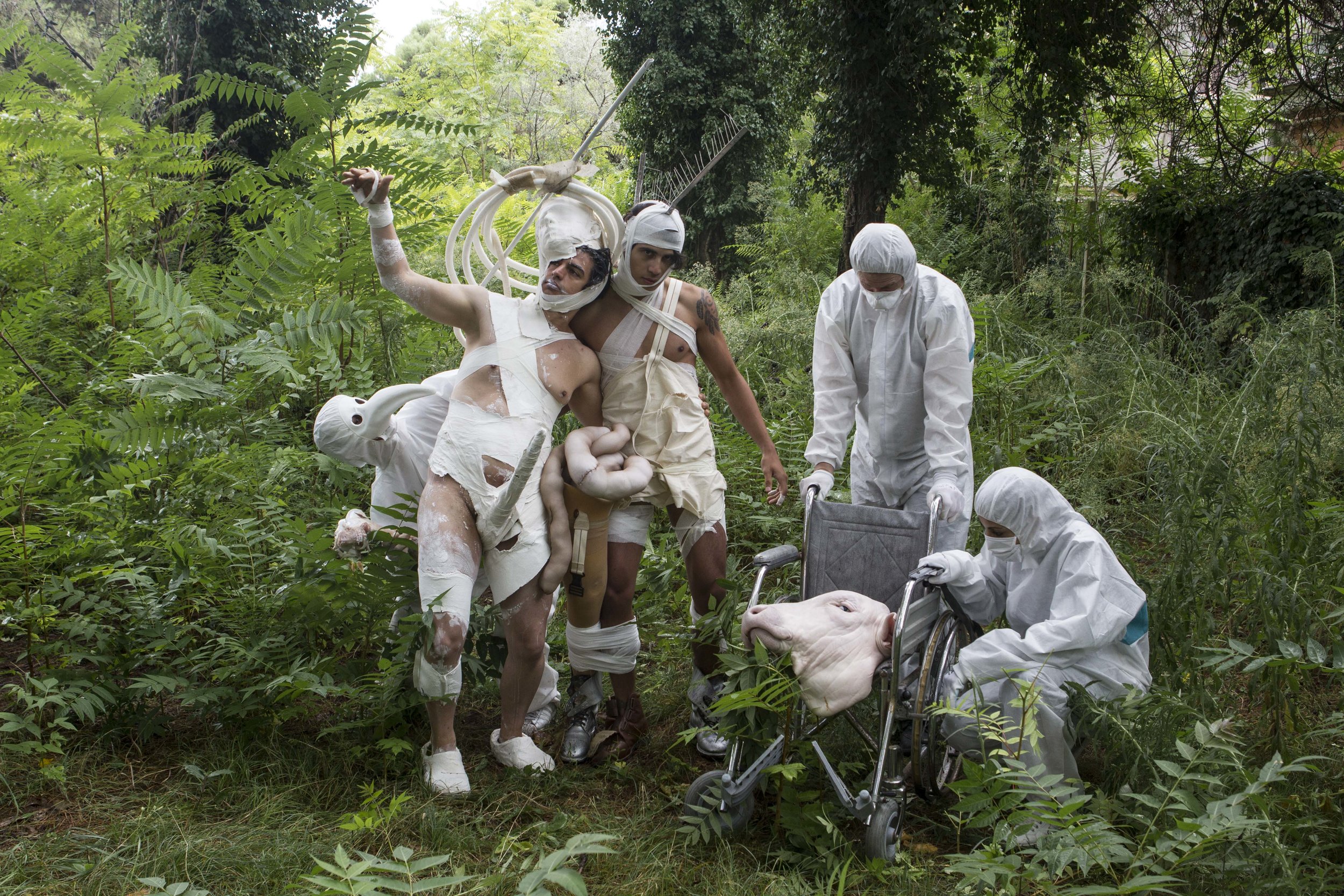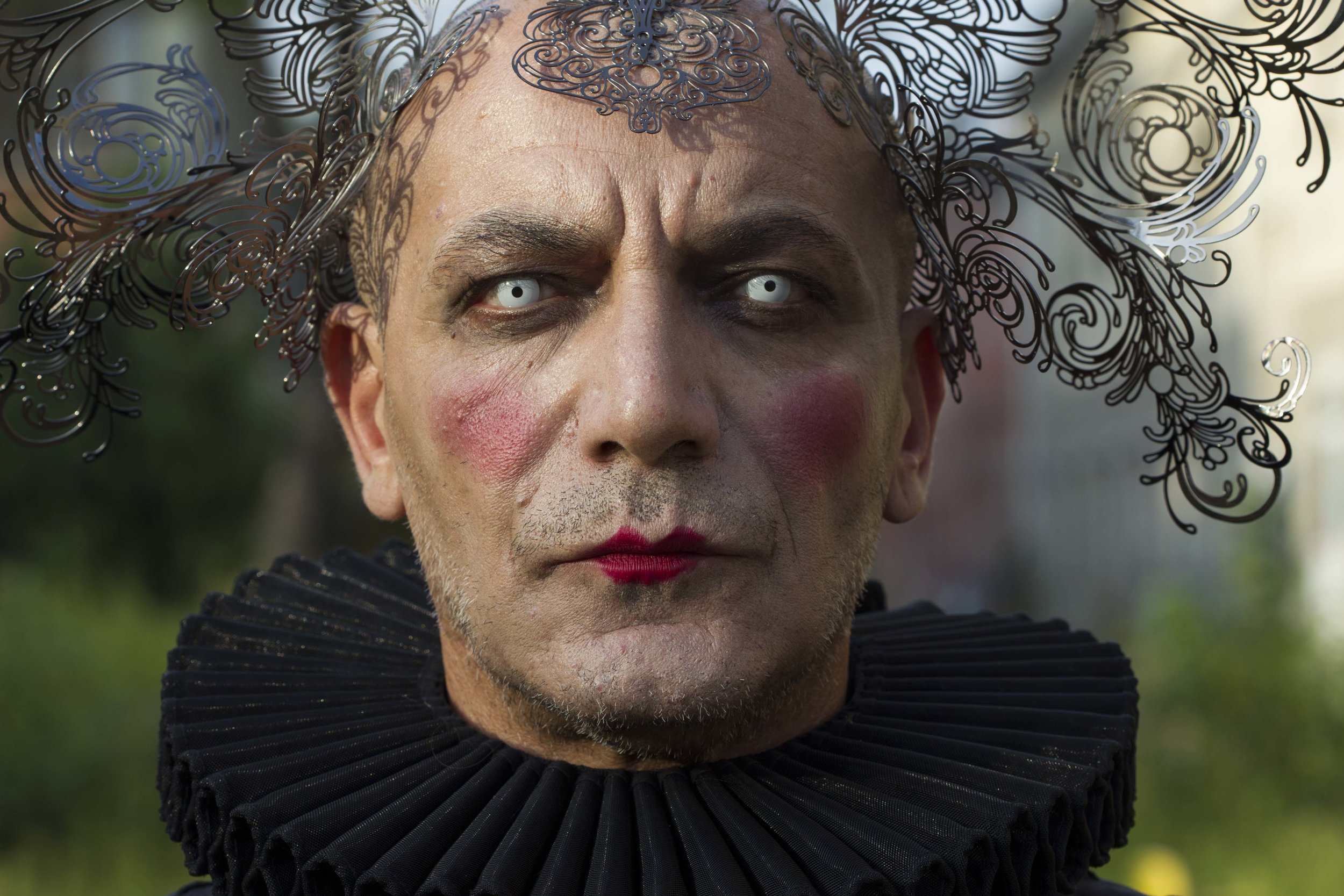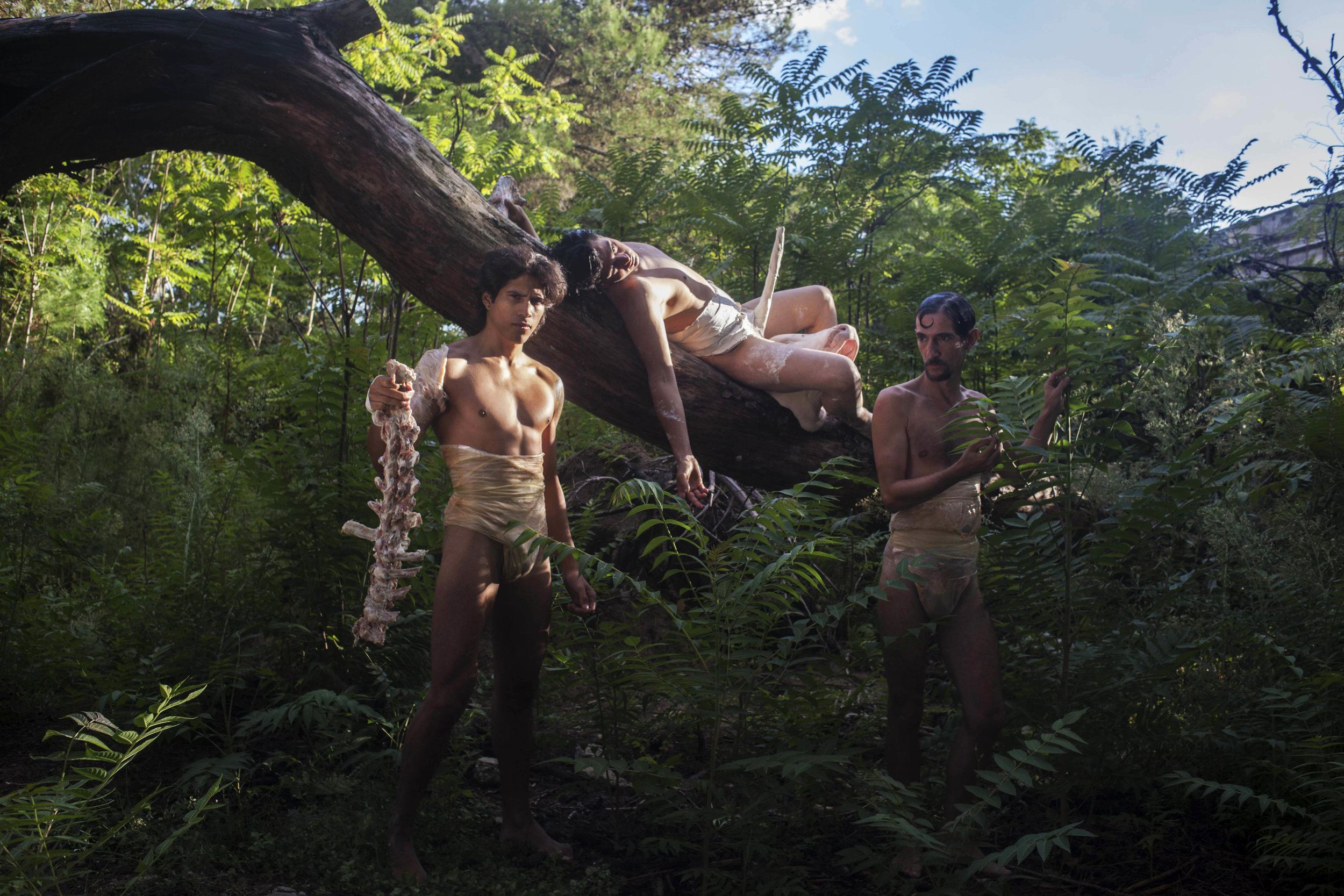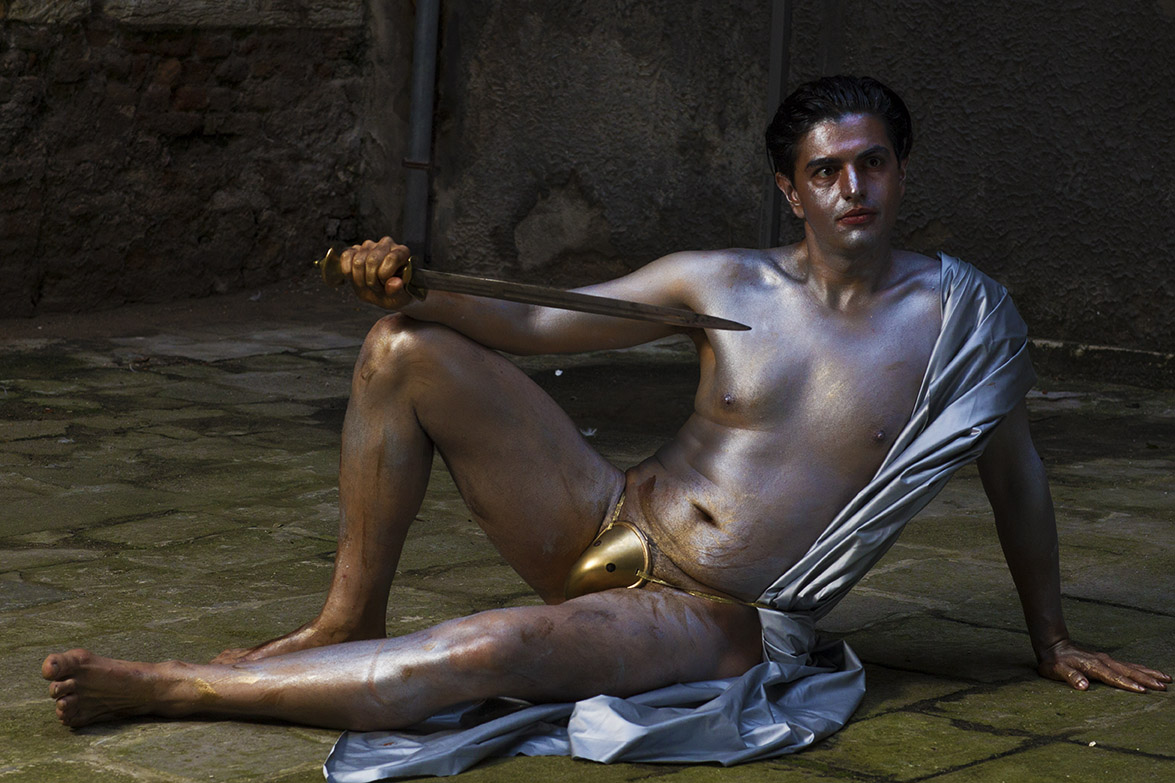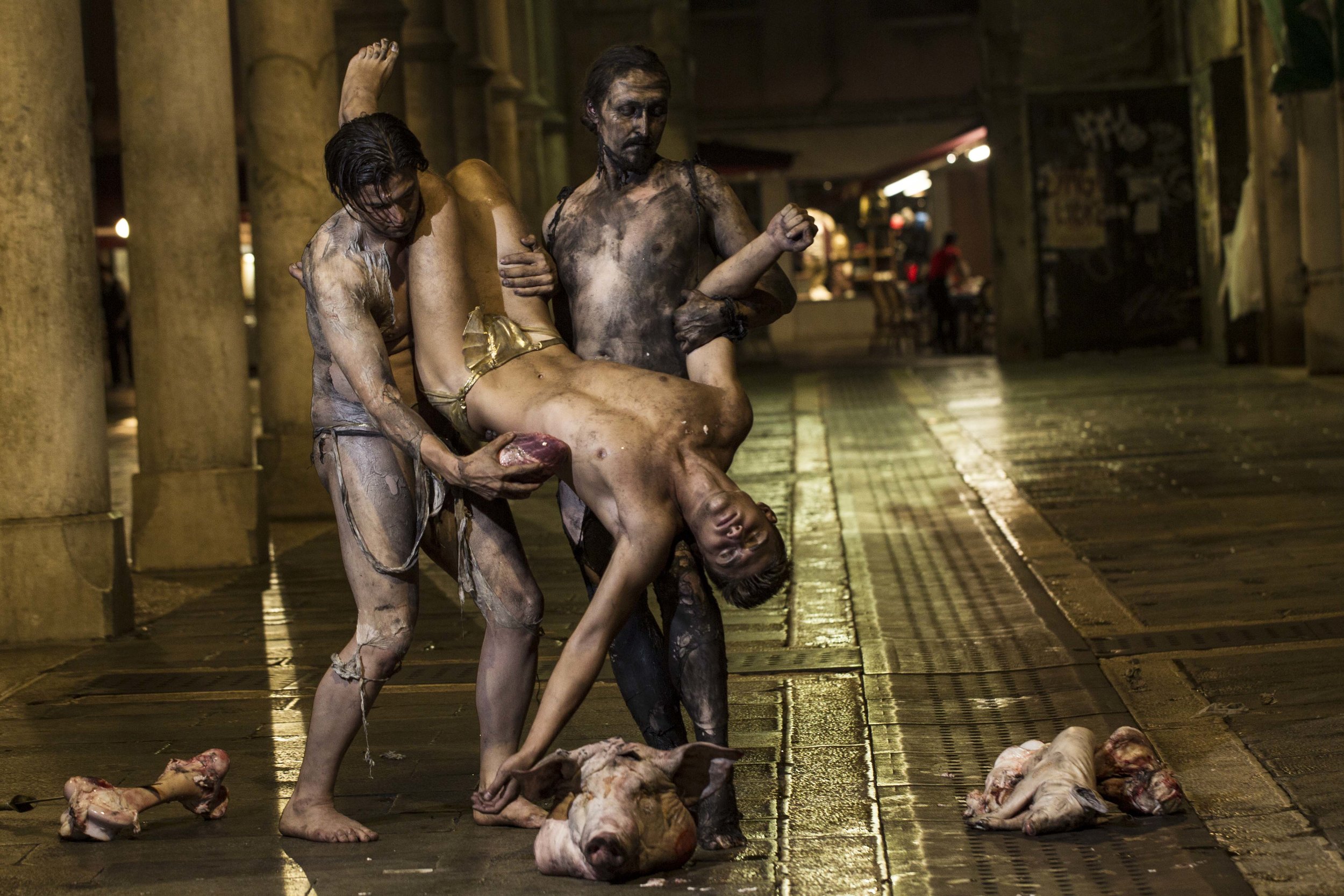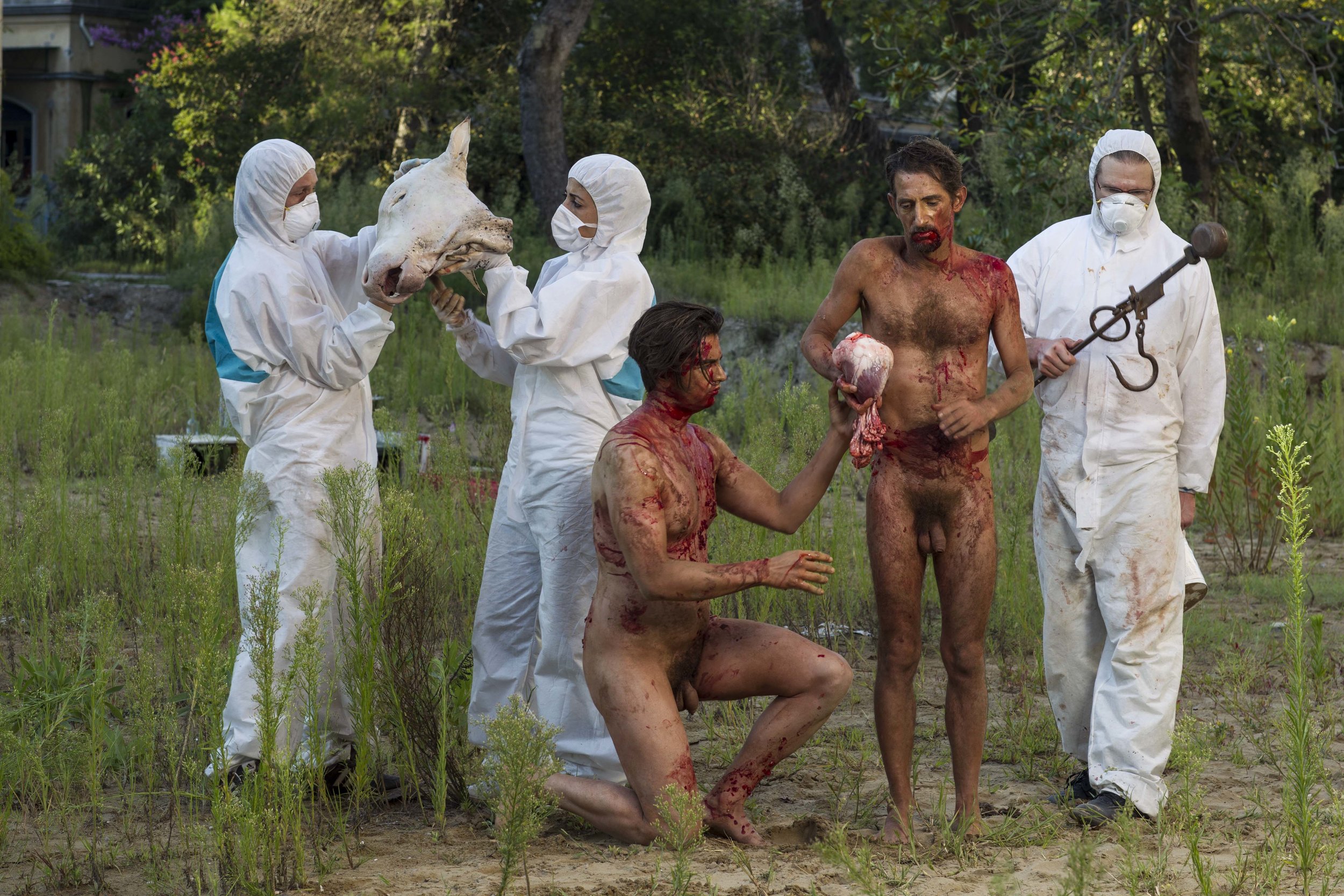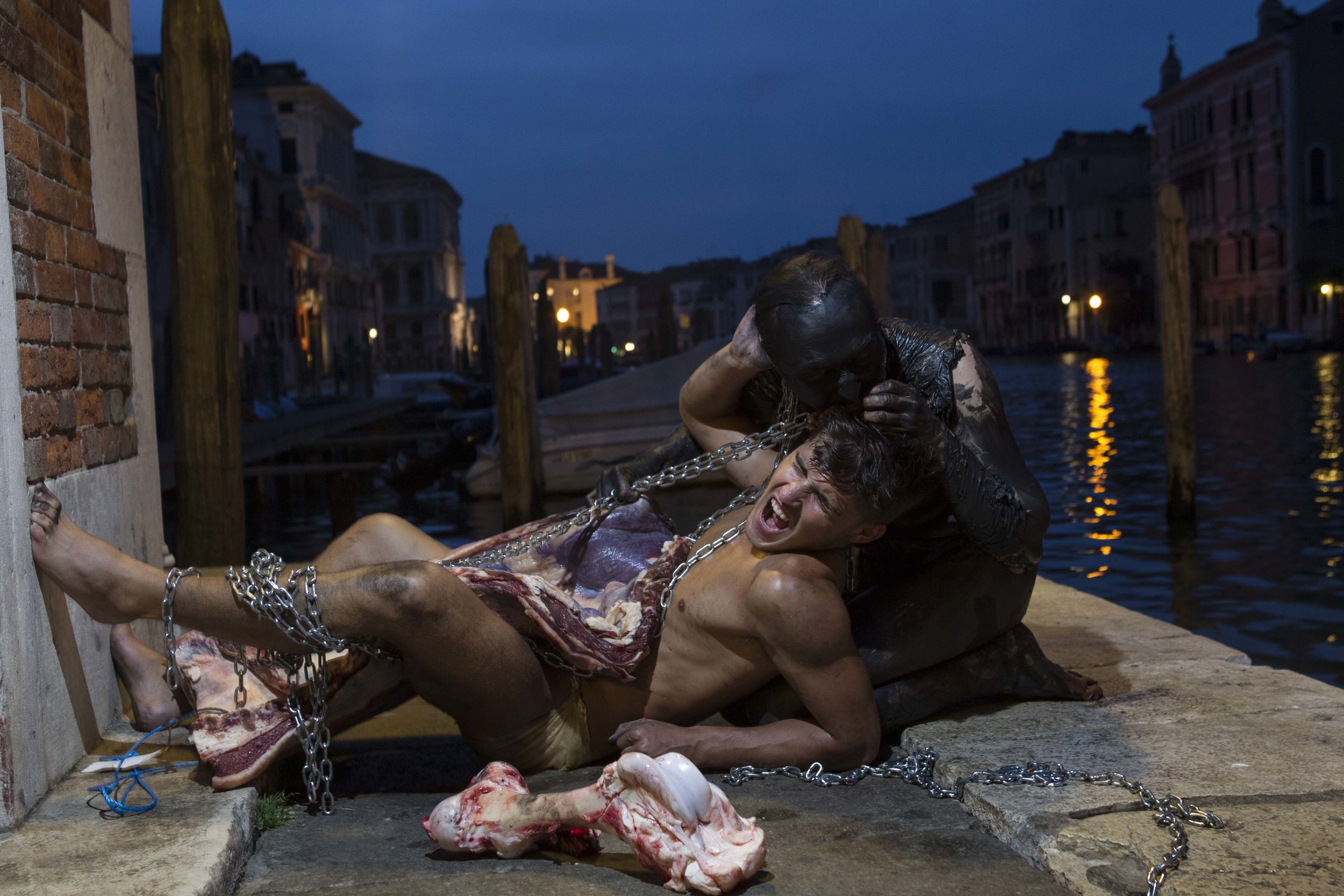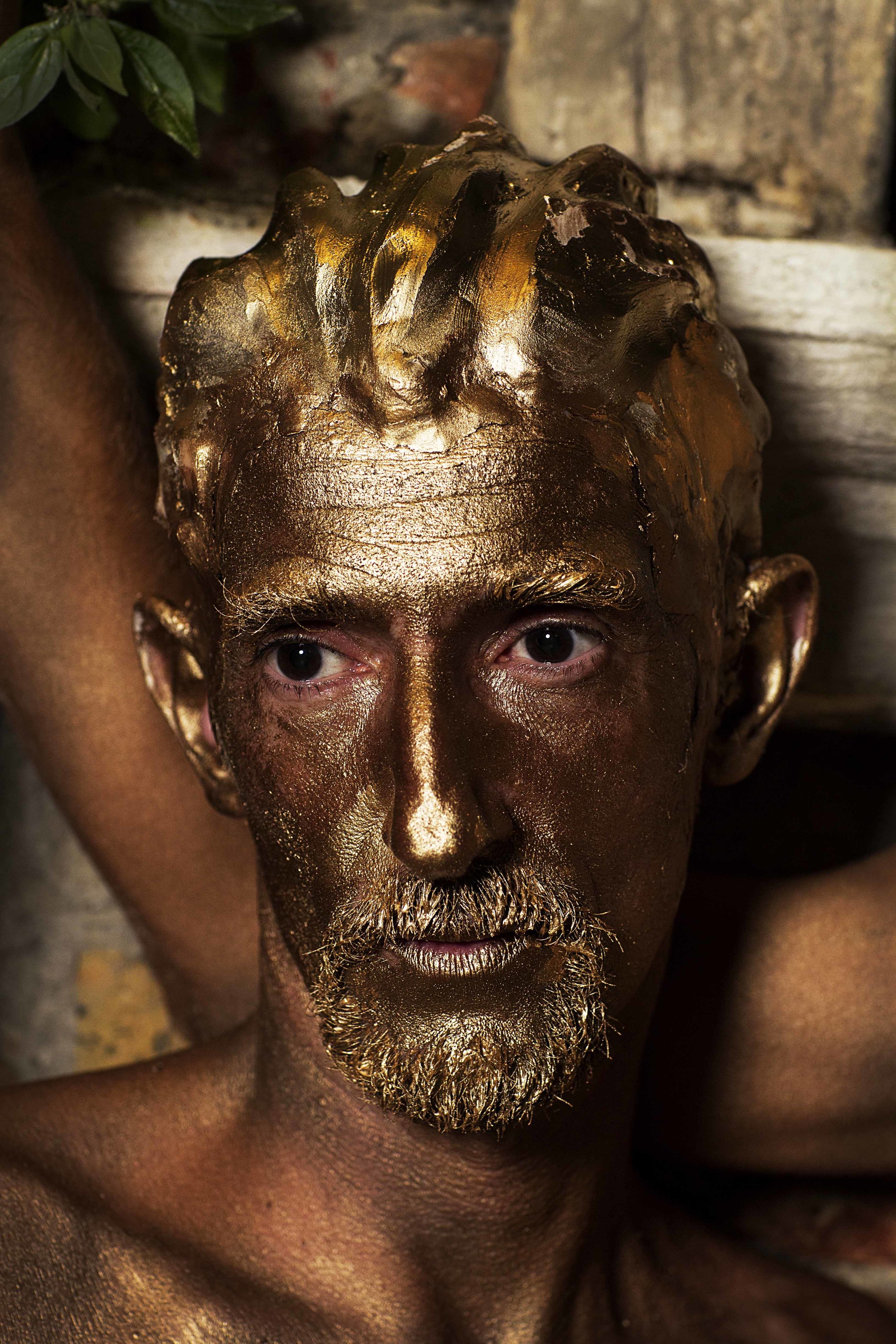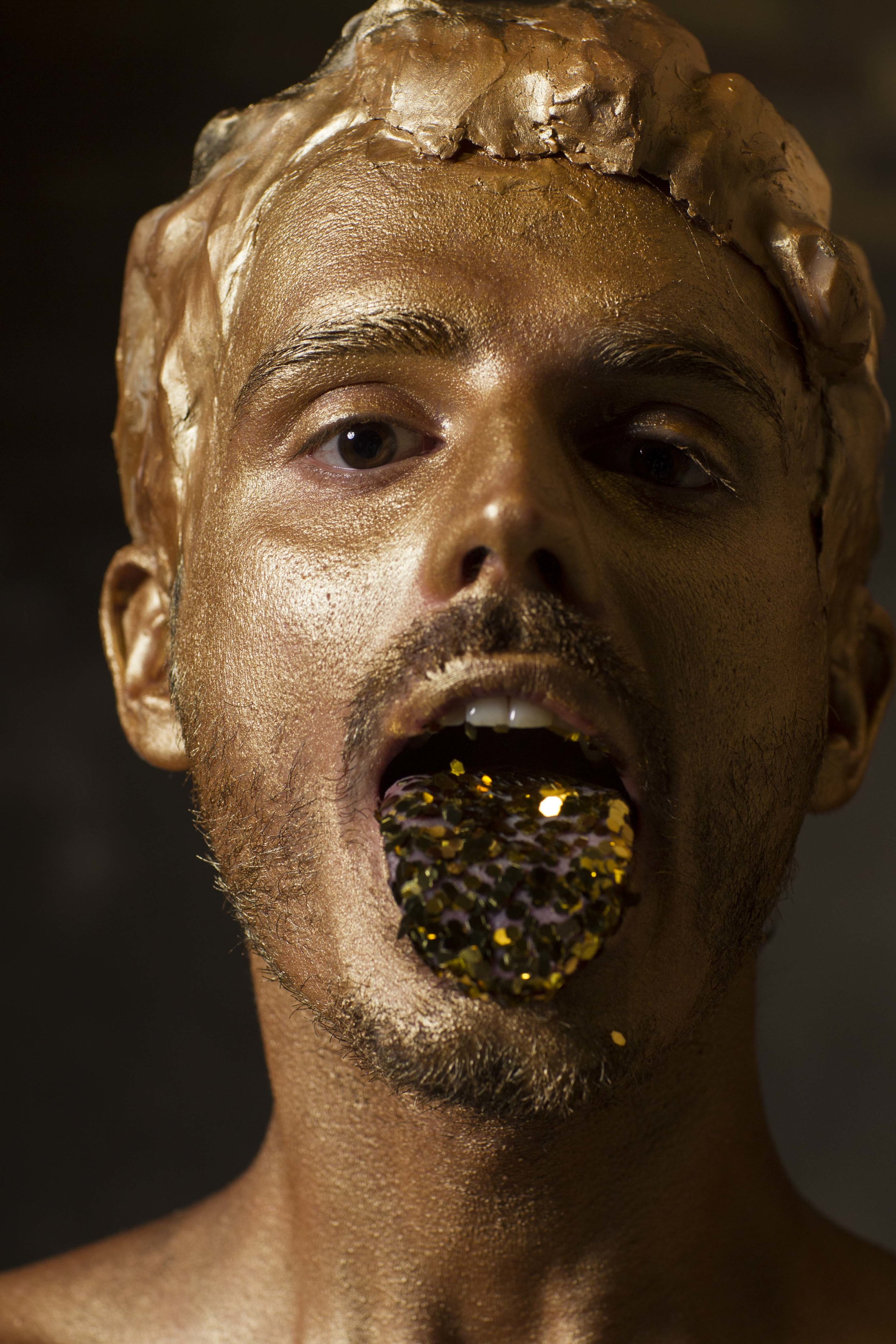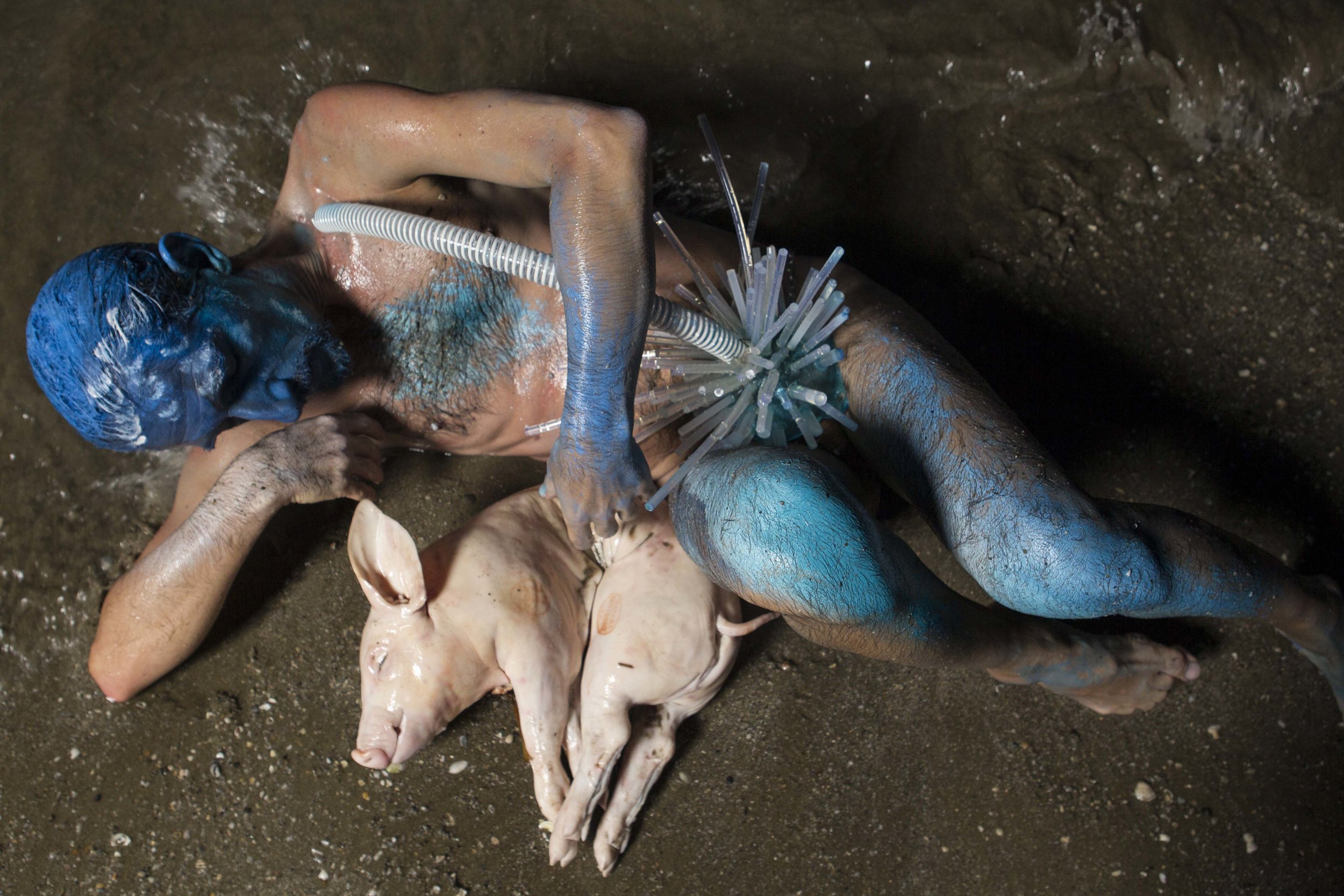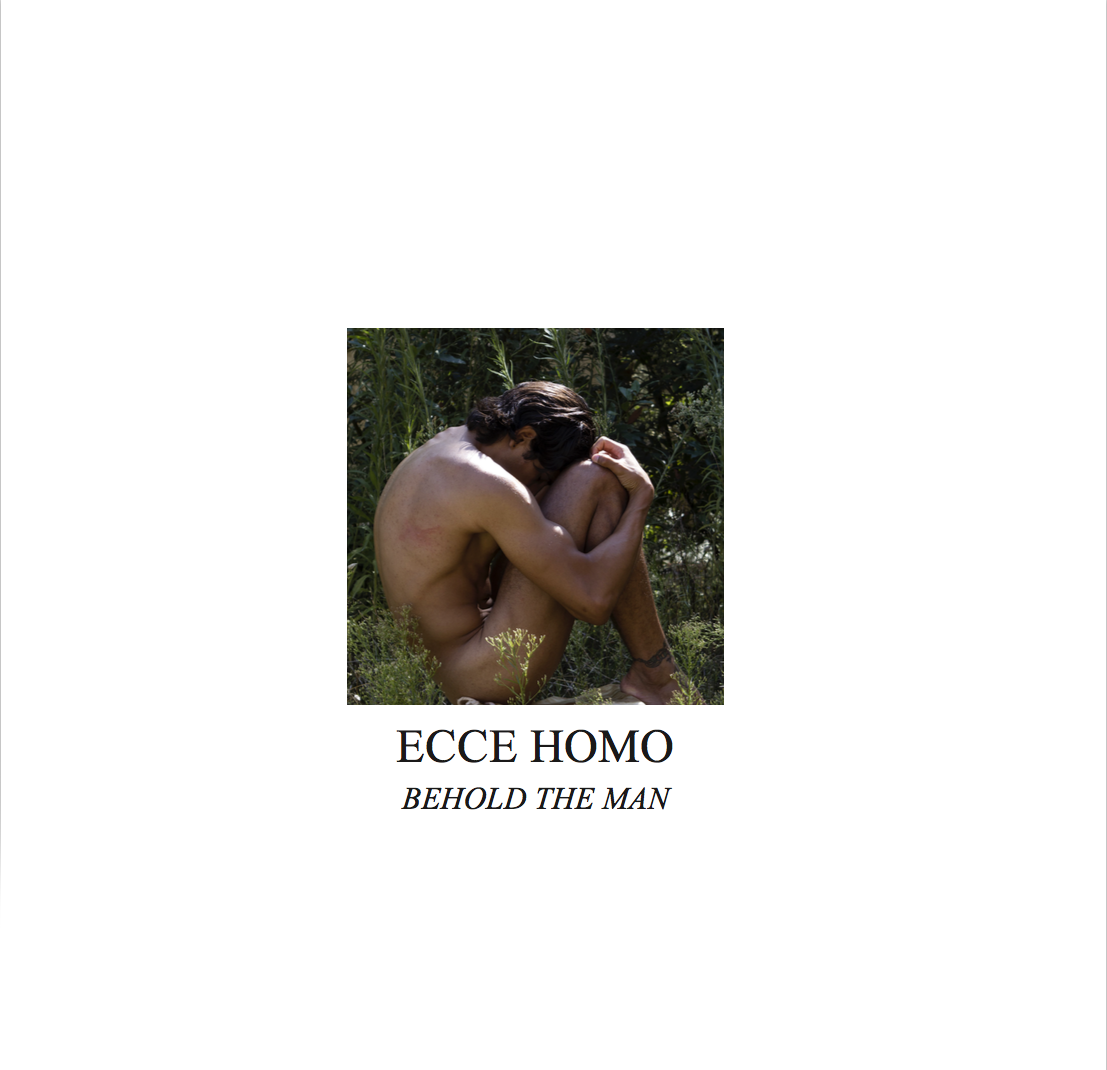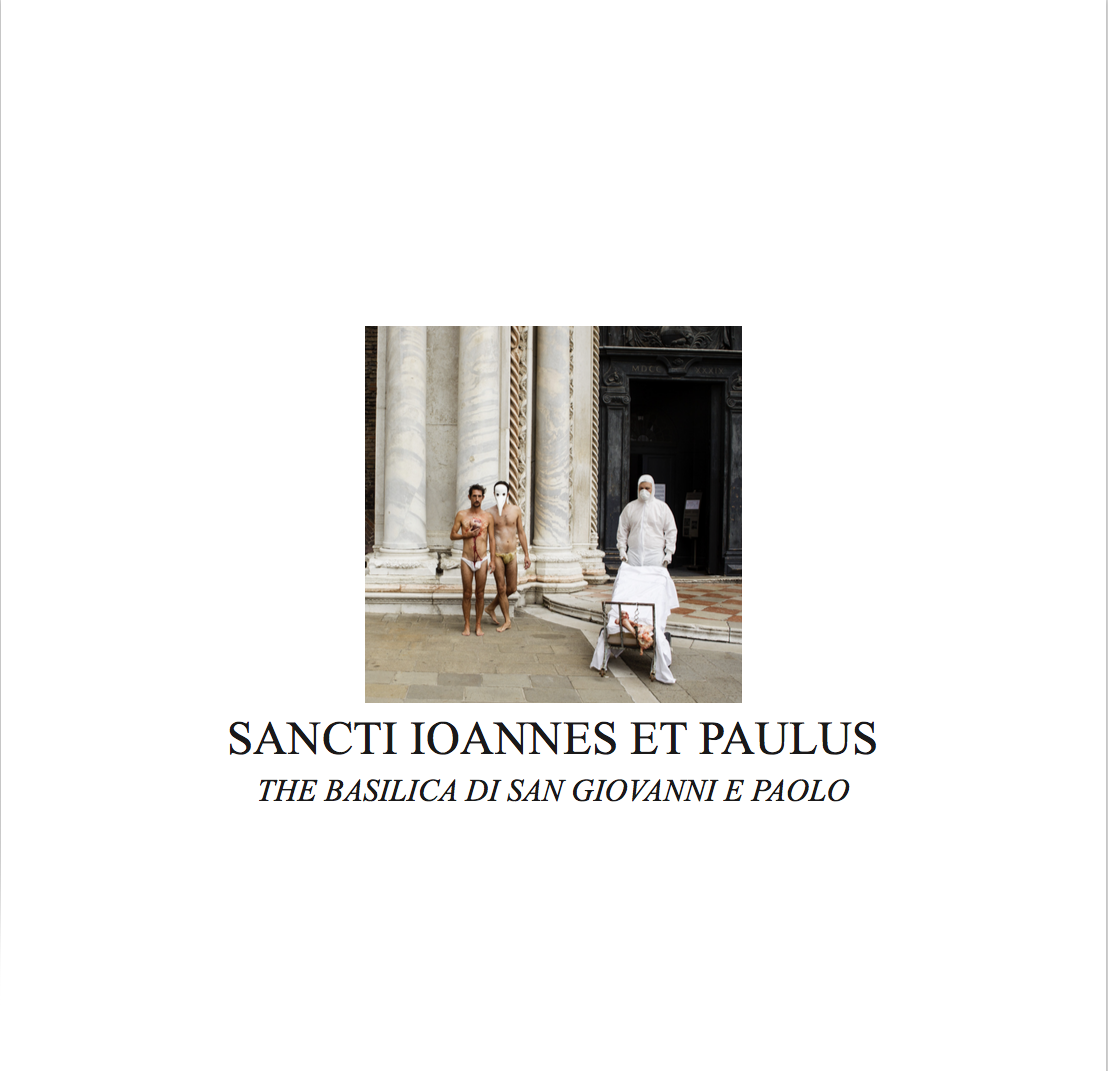OPEN17 VENICE : Exhibition for Sculptures and Installations
L’Uomo Is a 9 day production of photography, film and life performance for Open17 , exhibition for sculptures and installation curated by Paulo de Grandis. The public performance was taking place on the island St Servolo, situated close to Venice.
Dante Alighieri's masterpiece 'divine comedy' written in 1308 was the inspiration for this performance.
L’Uomo describes the world of the Man, a Warning for the 21st century.Since the beginning of civilisation, Man is the leading center of the arts, literature, cultures and politics. Since then, Man is told that he is the center of the world, God like.
Our planet Earth and the Universe turning around his male ideas, which lead to the exploitation and demolition of nature, oceans and skies
He created a world of domination and violence.His feeling of being superior, limits him in his own inner development.
Prisoner of his own ideas, whose burden never ceasing his suffering, he goes through different states - from paradise over purgatory and hell.
He is guided by his Phallus.His valorisations is Power and Dominance.
The man who lives for money is already dead. His body is full of the blood of innocence, far from the lost paradise .
L'UOMO - A WARNING FOR THE 21 CENTURY
Spectacular imagery and symbolic power illuminates Iris Brosch’s approach to visualize the self-understanding of man, his power, and inner con icts.Her feminist viewpoint facilitates a counterpart to In Paradisum and Woman & Nature near Extinction that translates into genders and man’s identity rather than issues of morality, mainly driven by narrations that follow strict doctrinal Christian values.Instead, the video and photo work describe man as a self-centered creature obsessed by power con icts throughout histories, destabilizes nature near environmental collapse, vigorously oppresses women in obtaining a patriarchal system, and is constantly in competition with his own gender.
Adorned with oversized phalluses men expose their genitals as the driving force of their actions, or in narcissistic poses highlighted, or in superior positions establishing themselves in tribal or societal roles. However, purgatory elements decipher a psychological dilemma of self-limitation, abuse of power now dealing with the consequences af- ter centuries of patriarchal dominance. Iris Brosch describes a pitiless and dark environment of suffering from masculinity engraved by the imagery of destruction, ferocity, savagery, bloodiness, and self-deter- mination.
In the end, Iris Brosch suggests a newborn man - or re-invention
of man - who emerges from the sea. Equipped with the matriarchal symbol of a piglet, both, ocean and piglet refer to ancient myths across worldwide matriarchal cultures of the “Great Mother,” out of which the divine and human ego have emerged.




